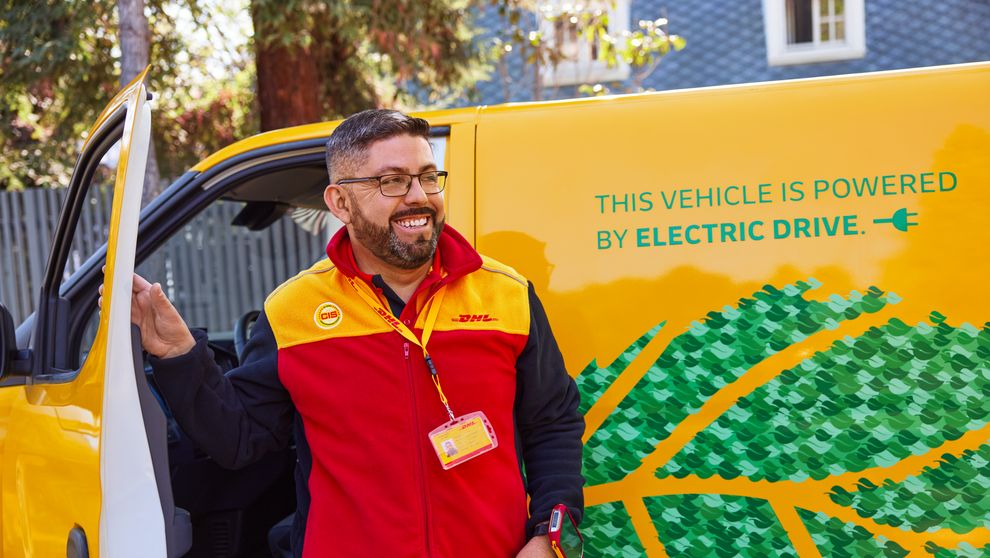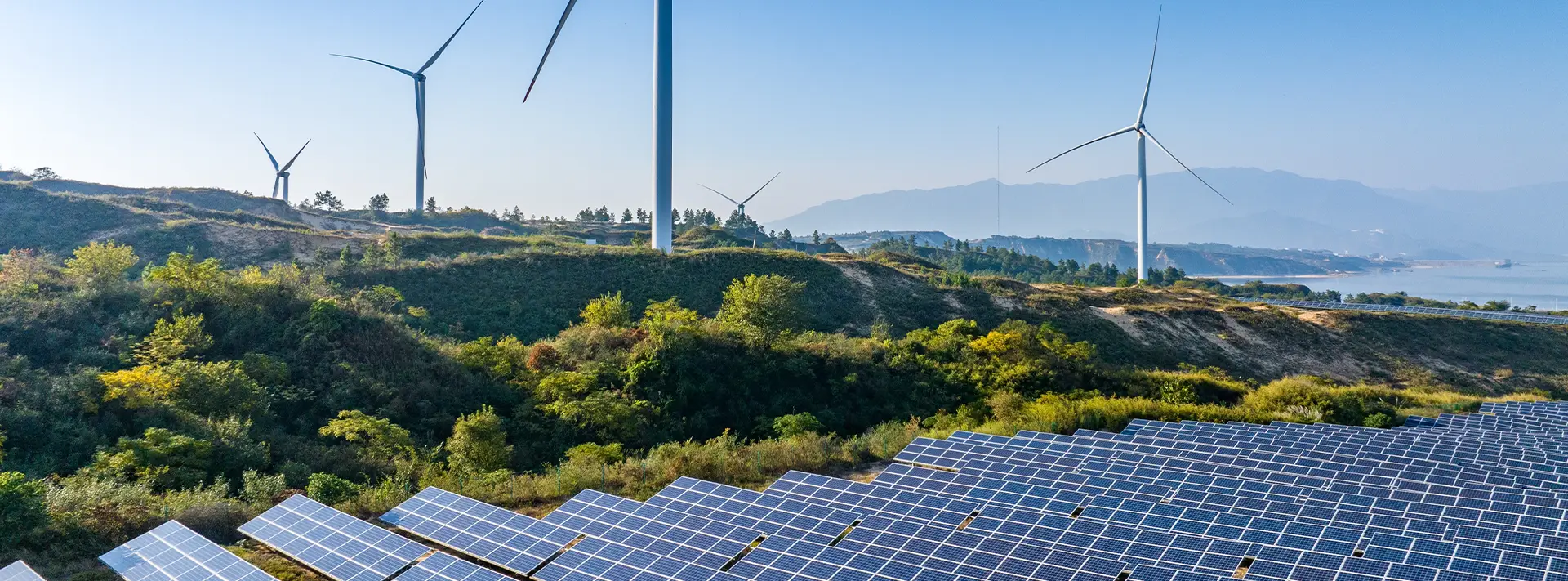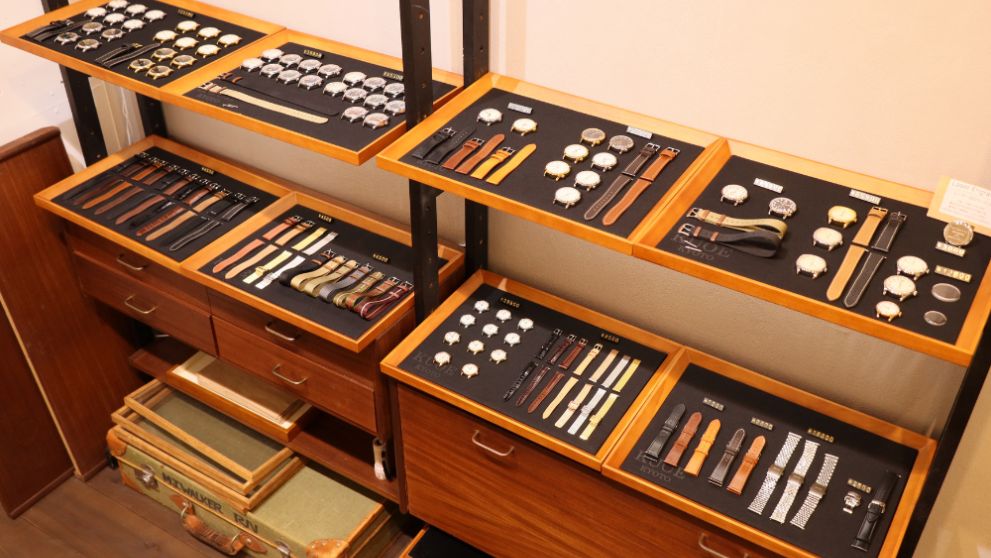Early adopters of GoGreen Plus, DHL’s new sustainable shipping solution, are investing in Sustainable Aviation Fuel (SAF) to reduce carbon emissions during air transportation.
In this interview, we feature SCREEN Semiconductor Solutions, a major semiconductor equipment manufacturer. Ms. Yuko Hizume, Department Head of Post Sales Operations, made the decision to adopt GoGreen Plus. She speaks alongside Mr. Masanori Hashimoto, Manager of ESG Promotion, who leads the company’s environmental initiatives, and Mr. Jun Shibukawa, also a Manager of ESG Promotion.
80 years of innovation based on core technologies
DHL: Congratulations on SCREEN Semiconductor Solutions' 80th anniversary last year. Could you tell us how the business is going?
Ms. Yuko Hizume, Department Head, Post Sales Operations (henceforth "Ms. Hizume"): Thank you. We are proud of our role as developers, designers, manufacturers, and sellers of semiconductor manufacturing equipment. Our success is rooted in our core technologies, including cleaning, etching, photolithography, and image processing, which we have honed over the years.
In 1943, we pioneered domestic production of glass screens for printing and plate making, which at the time relied on imports from Germany. Our history of innovation in surface processing and image processing technologies, which are indispensable for the manufacture of glass screens, has led to the development of our current electronics business.
The semiconductor industry is highly competitive, driven by rapid technological advancements. What sets SCREEN Semiconductor Solutions apart from its competitors?
Ms. Hizume: We got into the semiconductor manufacturing business relatively early, having commercialized semiconductor manufacturing equipment in 1975. Additionally, we collaborate closely with our customers and actively exchange information. This allows us to quickly identify their needs and stay ahead of the curve by developing cutting-edge technologies. Our strong customer relationships, particularly in the field of cleaning technology, have positioned us as a leader in the industry.
Mr. Jun Shibukawa, Manager, ESG Promotion Department, CSR Operations (henceforth "Mr. Shibukawa"): As an example, the standard diameter of wafers has gone from 200 mm to 300 mm, and we were the first company in the world to release semiconductor production equipment that could handle 300 mm wafers. This adaptability demonstrates our commitment to meeting evolving industry requirements.
What are the difficulties in dealing with post-sales, or maintenance parts, associated with the sale of manufacturing equipment?
Ms. Hizume: Since we manufacture products with different specifications to meet the needs of each customer, our diverse range of products have to be made in small quantities. If even a single part is missing, it can lead to a customer's semiconductor production line coming to a halt, causing significant damage.
Given the diverse range of parts, not all of them can be readily available in inventory. Instead, they often need to be transported quickly, sometimes requiring emergency shipments from Japan. Out of approximately 20,000 maintenance parts we handle each year, more than half are unique to individual customers.
Protecting the environment with energy-saving products
What challenges do you see in reducing CO2 emissions?
Mr. Masanori Hashimoto, Manager ESG Promotion Department, CSR Operations (henceforth "Mr. Hashimoto"): Across our supply chain, we find reducing Scope 3 carbon emissions a significant challenge. Reducing carbon emissions from Scope 3 category 11 (Use of Sold Products) is particularly important to us and we recognize the need to develop more products with high energy-saving performance.
What are some of your company’s sustainable business initiatives?
Mr. Hashimoto: One example is our recent launch of a new factory called S3-5 (S-Cube Five). Even as we expand our business and open new factories, we have declared a goal to achieve carbon neutrality. To achieve this, we are actively incorporating renewable energy into all of our facilities. Additionally, we are systematically upgrading our facilities to improve energy efficiency. Furthermore, we continue our efforts to reduce waste, especially plastic waste, and water consumption.
Traditionally, a significant amount of water is utilized in semiconductor manufacturing.
Mr. Shibukawa: Yes, in the past, water was continuously flushed in semiconductor manufacturing to maintain high water cleanliness levels, and any unused water was discharged. However, some of our advanced equipment has been equipped with filtration systems, enabling us to reuse water and reduce overall water consumption.
Mr. Hashimoto: In response to requests from customers in regions with water scarcity, we are also developing equipment that can minimize water usage. We believe it is essential to contribute to the local community by addressing their needs.
Pioneering environmental solutions for the industry
How did you come to know about GoGreen Plus?
Ms. Hizume: Following the Covid-19 pandemic, we faced challenges in procuring parts due to shortages, resulting in an increase in emergency shipments. At the time, a DHL sales representative informed us of this new solution to reduce our carbon emissions. While we had heard of Sustainable Aviation Fuel (SAF), it was DHL's proposal that made us realize its practicality as a service and how it could benefit our business.
Who made the decision to implement GoGreen Plus?
Ms. Hizume: The decision was mine. Though our customers have the right to select their delivery method, when it was left to our decision, we opted for GoGreen Plus due to the possibility of achieving a 100% emissions reduction. We decided to use GoGreen Plus not only for aftermarket parts, but also for our small-lot shipments with DHL. We had to get internal buy-in but, as other departments were also aware of environmental issues, they understood that it was a necessary investment.
Have any international carriers other than DHL proposed similar emission reductions?
Ms. Hizume: After DHL's proposal, we received similar proposals from several companies. However, DHL was the first proposal we received. Furthermore, DHL Express offers door-to-door transportation, making it easier to observe the emissions reductions per shipment.
Did you face any resistance to the introduction, such as increased costs?
Ms. Hizume: Investing in SAF indeed increases costs, however, we hope to absorb this cost increase throughout the supply chain by reducing unnecessary waste. Despite the potential cost, we believe it is necessary from an ESG perspective to proactively reduce our transport-related environmental impact.
What do you expect from DHL's GoGreen Plus?
Ms. Hizume: Environmental certifications like ISO have become common requirements for doing business. Similarly, I anticipate that in the future, certifications from bodies like DHL's GoGreen Plus, specifically regarding Scope 3 emission reductions, will become a standard practice.
What are your further environmental initiatives and goals?
Mr. Hashimoto: Our carbon reduction target had been certified by SBTi, in alignment with the goal of keeping the temperature rise well below 2°C by 2030. In January 2024, we renewed our SBTi certification to align with the even more challenging goal of limiting the temperature rise to 1.5°C. As a result, Scope 3 emission reductions have become increasingly important.
Mr. Shibukawa: Among the carbon emissions in our entire supply chain, our company's largest share falls under Scope 3, Category 11, which pertains to emissions from the use of sold products. Therefore, it is crucial for us to continue developing equipment with high energy-saving performance.
Mr. Hashimoto: Reducing emissions across all Scope 3 categories is vital, and we hope that DHL will continue to promote environmental measures and collaborate with us as a logistics partner.
Ms. Hizume: DHL is indeed a leading global logistics company . Thank you for introducing GoGreen Plus to us so quickly.
From a DHL Sales Representative
Screen Semiconductor Solutions is an excellent company in the Kyoto area. They have long been concerned about reducing their Scope 3 emissions, so I was one of the first to propose the GoGreen Plus service when it was launched.
In the near future, we expect it to become the common standard to reduce transport-related through carbon insetting, a key feature of GoGreen Plus. As such, we recommend this service not only to shippers doing business with environmentally conscious markets like Europe, but also to a wider range of customers in any industry.
DHL Japan Inc.
National Sales, West Japan, Field Sales Executive
Yuki Maeda
Customer Profile
First name: SCREEN Semiconductor Solutions, Inc.
Establishment: 2006
Business description: A core company of SCREEN Holdings that develops and manufactures semiconductor manufacturing equipment. Founded in Kyoto, Japan, the company has continued to innovate technology and develop products that meet customer needs, and last year marked the 80th anniversary of the group's founding.
Website URL: https://www.screen.co.jp/spe/







